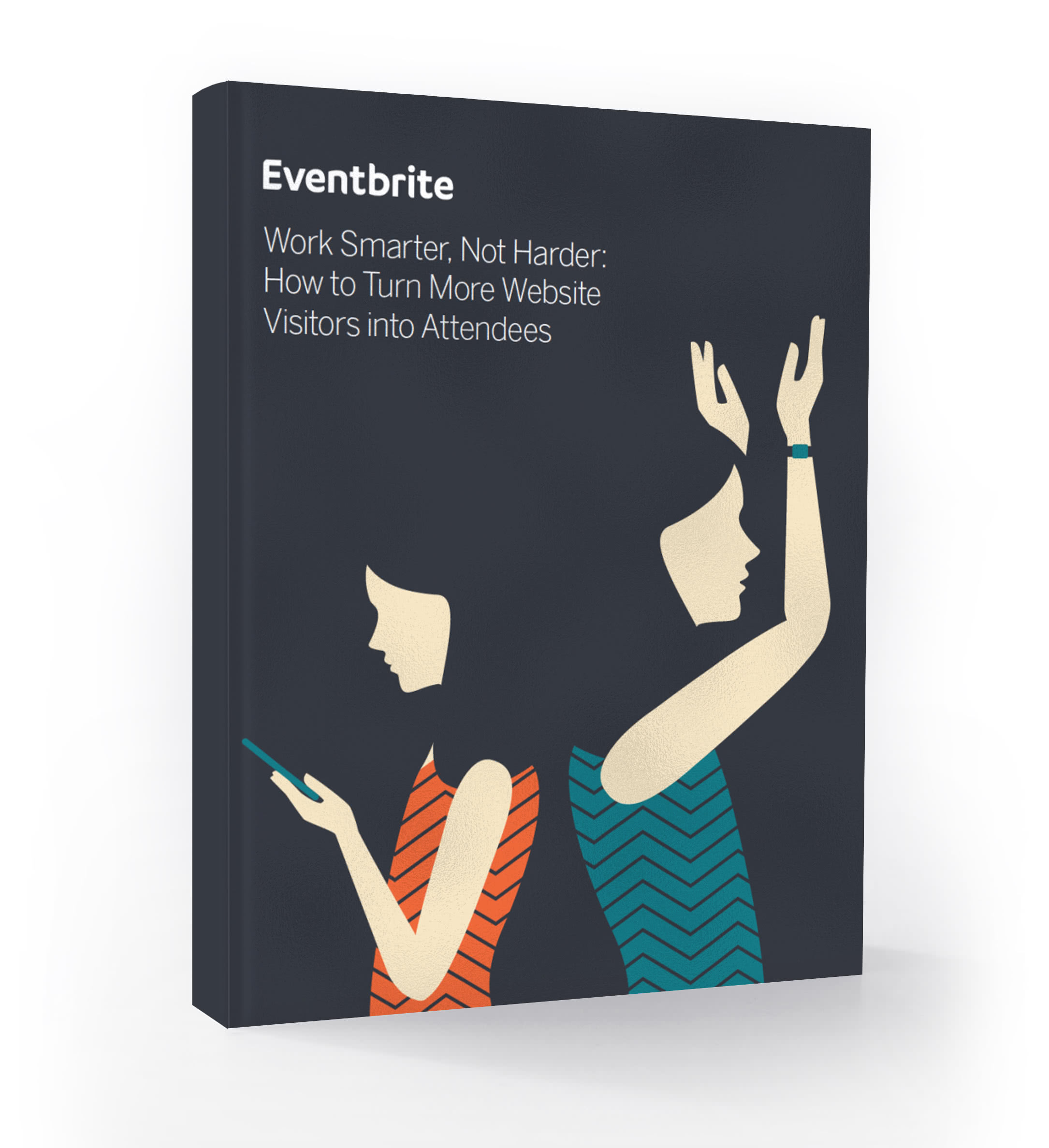In the early days of online ticketing, phones weren’t a big factor for event organizers. The assumption was that most people were signing up for events on laptops and desktop computers. But the retail industry experienced a tipping point in 2013, when more consumers started to interact with online retailers on smartphones and tablets than from traditional computers.
The word interact is important. Your customers may or may not buy tickets on their phone or tablet, but chances are, the moments leading up to the ticket purchase occur on mobile. For instance, a potential ticket buyer might follow a pattern like this:
- While scrolling through Facebook in line at the post office, she sees a friend’s post mentioning your event.
- The next day, at the grocery store, she’s standing in line again when she sees a sponsored Instagram post about your event. Remembering her friend’s post, this grabs her attention.
- Now she’s curious, so later on that evening, she makes an effort to watch a YouTube video featuring one of your entertainers. But her wallet is downstairs and she’s cozy in bed, so she doesn’t buy a ticket… yet. (Pssst. If she had an Eventbrite account, she could buy tickets without breaking out her wallet; All of her information would be stored already, helping you land the sale sooner.)
- She does, however, sign up for email notifications from your website — easy to get to from your YouTube page.
- The next day, she’s on the bus when she gets an email on her smartphone reminding her that tickets are almost sold out. Inspired by all her research over the past few days, she clicks to buy from her phone.
This is just one of many potential scenarios that could unfold on an attendee’s journey to commit. Any interaction with your event and your brand could lead to a ticket purchase, so every mobile interaction needs to be seamless.
In late 2016, Neilsen counted how many people in the US had smartphones. Not surprisingly, Millennials won this competition: 98% do. But even 68% of people 65 and older have smartphones these days. And research has proven that mobile users are more likely to “convert,” or buy tickets. The reality is that we can no longer ignore the mobile experience.
As an event organizer, here are a few ways you can capitalize on the mobile movement to boost ticket sales and elevate your attendees’ path to purchase:
Optimize for mobile search
75% of Facebook ad traffic comes from mobile users, and Google reports that more people use their phones for search than their computers. Think about it — you’re out with friends when someone mentions a band that’s coming to town: You probably whip out your phone to get details before you forget.
But all searches are not created equal. People tend to search for things on mobile when they are near or looking for a physical location. Mobile search prioritizes proximity as a ranking factor. To optimize your event website for local mobile, use geographic terms like “Northern California” and “New York City” frequently in your content.
Also, keep in mind that it’s harder to type on a mobile device than on a desktop or laptop. So if you’re using keywords strategically, keep them short and easy to type. And mobile searchers tend to take advantage of “predictive search,” when the device guesses what a user is trying to type. Using keywords that come up easily in a predictive search will help you. To test your keywords, enter a search term from your smartphone to make sure it shows up in Google’s predictive search results.
Build a responsive website
When mobile users land on your page, don’t frustrate them with a website that’s hard to view and use on a small screen. It’s crucial your website displays well and can be navigated without a keyboard, mouse, or trackpad. Potential attendees shouldn’t have to pinch and zoom to buy a ticket on your site, and they shouldn’t have to scroll sideways to see all the fields in a form. This is called responsive design.
Responsive design isn’t just about the look, though. Studies have shown a 160% increase in purchase completion with mobile-optimized payments. If you’re using an innovative ticketing partner, they should be able to help you build a responsive site with streamlined, mobile-optimized payments.
Don’t make buyers download an app
“It’s statistically more likely for customers to interact with your website on a mobile device than on a desktop.” — Neil Patel on Kissmetrics
7 out of 10 customers are turned off by having to download an app in order to conduct a transaction. They want to do it right from your website, whether they’re on a mobile phone, a desktop, or a tablet. Another reason to make sure your website is mobile responsive and has a smooth, easy checkout process.
But apps still have their place. Devoted shoppers who tend to buy from the same places over and over again find apps useful, and the most popular apps are mainly social media platforms: Facebook, Facebook Messenger, YouTube, and Instagram are all in the top ten. Social media is a crucial touch point for event ticket buyers, so make sure your social ads look great on the small screen.
Be wherever your buyers are
“The fewer clicks it takes to get a ticket, the better.” — James Moody, the owner of Mohawk in Austin
Your website is important, but it’s hard to predict at which point a customer will press “buy.” The more steps it takes to buy a ticket, the higher the possibility the user will change her mind, get distracted, or get frustrated and give up. In fact, every time you add a step to the checkout process, you lose up to 10% of your potential ticket buyers. And when you force someone to log in to buy a ticket you lose 23% of potential buyers.
More and more, event organizers are interesting in making sure their customers can buy tickets from wherever they are. This is called “distributed commerce.” Nearly all the venues Eventbrite has interviewed (98%) agree that enabling ticket sales on social media and other platforms could be big growth drivers. Imagine a music-lover on Spotify discovering a new band, realizing that band is playing live locally soon, and instantly buying tickets to that show — all without leaving Spotify.
To capture buyers the moment they are ready to purchase, make mobile ticket purchasing easy. Don’t make them navigate to your website or to an online ticketing app. If they see an ad or a post for your event on social media, the “buy now” button needs to be right there.
(And by the way, Eventbrite’s new partnership with Facebook makes it easy for your users to buy tickets right from the social media platform.)
For more on how to sell more tickets by making it easy for people to buy, download “Work Smarter, Not Harder: How to Turn More Website Visitors into Attendees.






